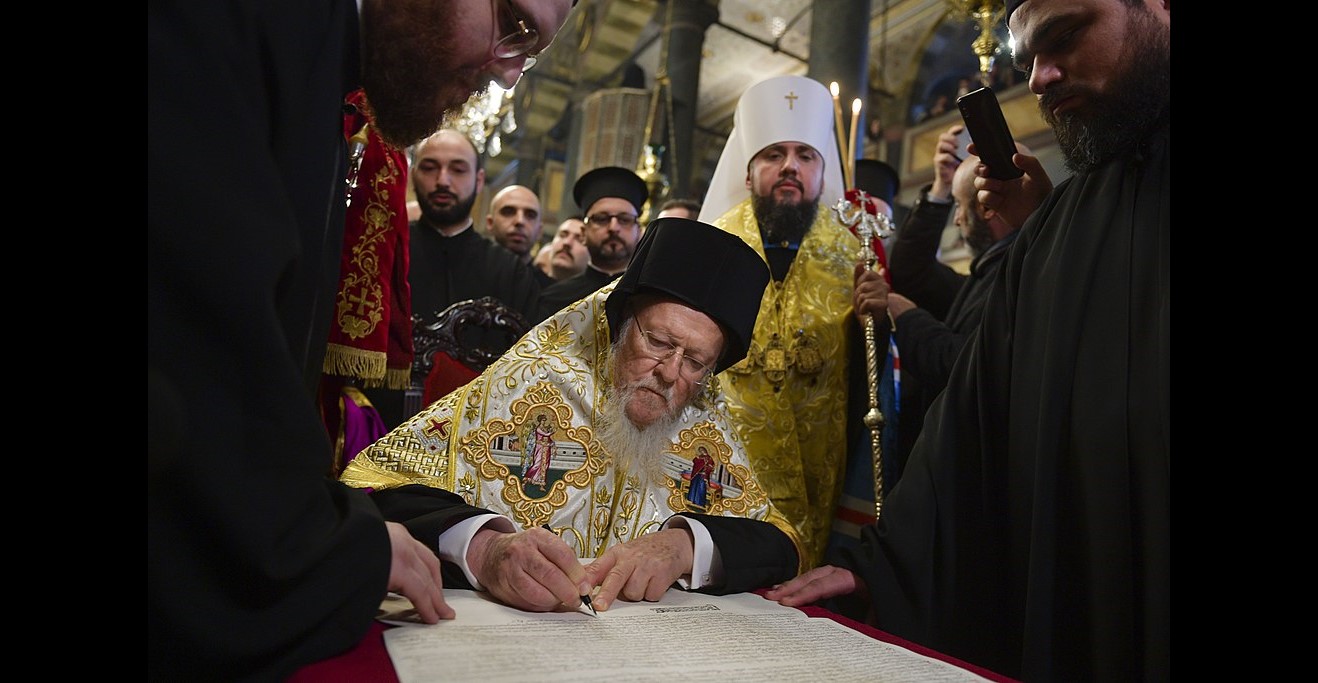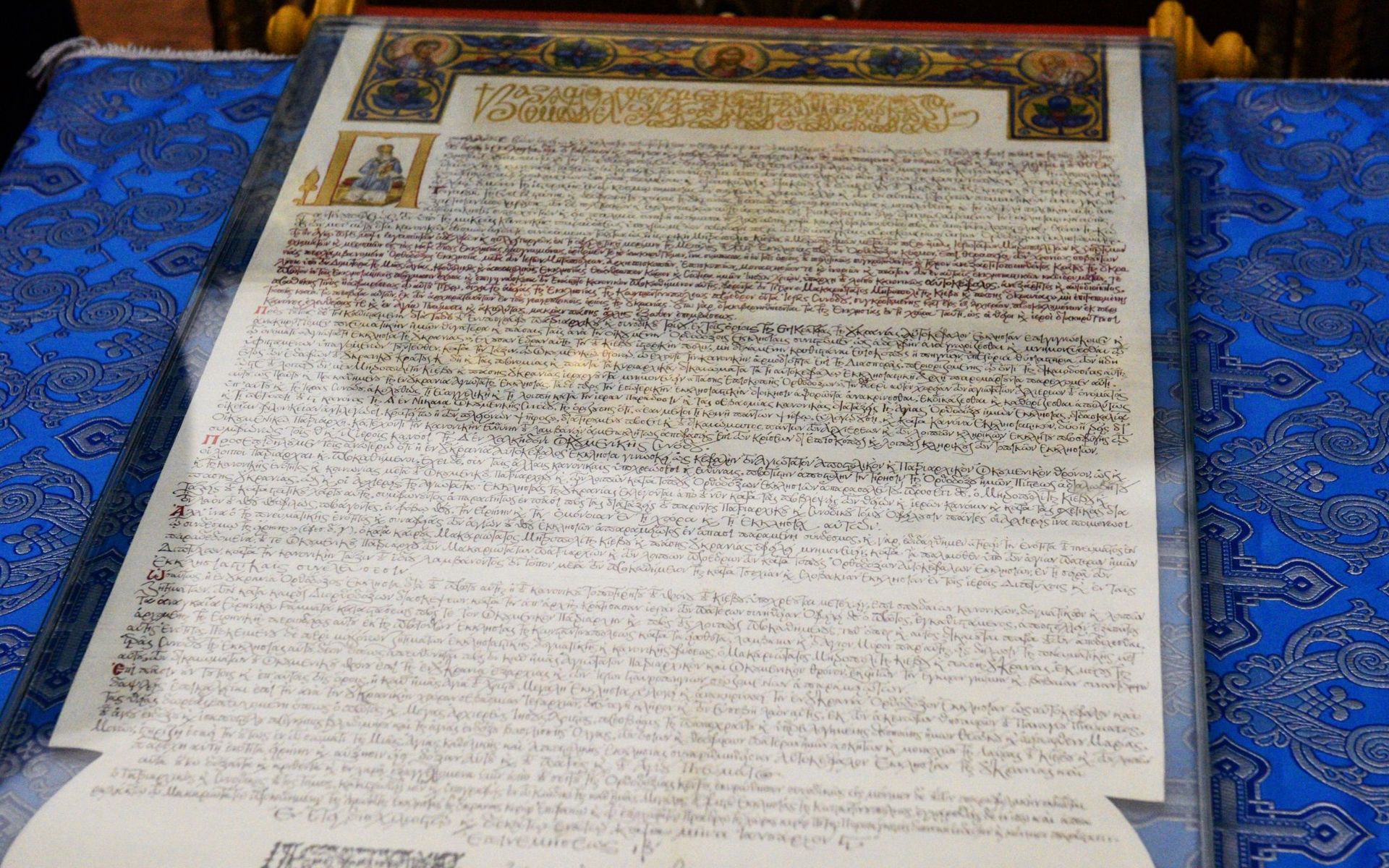Many commentators have suggested that the grant of autocephaly to the Orthodox Church of Ukraine is a great victory for Ukrainians but a defeat for Russians, but that is not the case, Andrey Illarionov says. It is a defeat for Vladimir Putin and the Kremlin but it is very much a victory “for the free citizens of Free Russia in the future.”
The receipt of independence by the Ukrainian church, the Russian commentator says, “is a death blow to the most important element of the Russian imperial institutional infrastructure that still has been preserved.” The destruction of that infrastructure is necessary for a free Russia to emerge.
Indeed, if that imperial infrastructure continues to exist, Illarionov argues, “the appearance of a free Russia is, judging from everything, impossible.” And thus “the establishment of an autocephalous church of Ukraine is an absolutely necessary preliminary step on the path to a free Russia.”
“The Russian imperial institutional infrastructure,” which began to be put in place in the middle of the 16th century and “achieved at the end of the 1980s the peak of its power” consisted at that time of the following five elements:
- The communist party (i.e. the Communist Part of the Soviet Union and the parties of the satellite countries),
- State and multi-lateral institutions,
- The army (i.e. the Soviet Armed Forces and the armed forces of the Warsaw Pact),
- The special services (i.e. the non-public cooperation of special services of these states),
- Orthodoxy (i.e. the Russian Orthodox Church of the Moscow Patriarchate).
The first of these was dismantled under Mikhail Gorbachev.
The dissolution of the second one was “partially completed” by 2014 and has been further weakened by Moscow’s war against Ukraine.
And the third and fourth have been weakened over time but still constitute a serious threat to and source of worry in Russia’s neighbors.
That leaves the fifth element of this imperial infrastructure – Orthodoxy or more precisely the Russian Orthodox Church of the Moscow Patriarchate (ROC MP). It had largely remained in place, at least at the level of claims, with the exception of the disputed cases in Estonia and Moldova and allowed Moscow to speak about a broad “Russian canonical territory.”
Indeed, the ROC MP to this day claims a canonical territory which covers “more than 35 percent” of the earth’s surface, Illarionov says. And because the other four elements of Russian imperial infrastructure had disappeared or been weakened, it is not surprising that imperialists in Moscow placed and place particular hopes on the ROC MP and its canonical territory.
The weakening and eventual demise of this fifth element required the rise of independent states seeking their own autocephalous churches.
Ukraine is especially important because of its size and because of the way in which its independence and now the independence of its church strike at the imperial nature of the ROC MP and push it toward becoming a national church.
Unfortunately, Illarionov continues, “neither the ROC MP nor Russian society as a whole is in a position to escape on their own from the imperial nature of the Russian Orthodox Church.” Ukraine’s action thus not only achieves something critical for the Ukrainian nation and its independence but also something at least as important for a future free Russia.
Other national churches will emerge on the former Soviet space, he continues; but what is important and deserving of celebration now is that it has begun. Russian citizens thus should be extremely grateful to the Ukrainians, the Universal Patriarchate and Patriarch Bartholomew “personally.”
Further Reading:
- Now-independent Ukrainian Orthodox church set to be major player internationally, Illarionov says
- Ukrainian Orthodox Church head says Russian Orthodox Church will remain in Ukraine as many want it and he’s not against that
- Are the Uniates about to make common cause with newly autocephalous Ukrainian Orthodox?
- New chances, new risks. Where Ukrainian Orthodoxy stands on the eve of independence
- A short history of the Ukrainian Church: infographic
- Ukrainian autocephaly destroys ideological foundation of Russian empire, Espresso says
- Old wine in new bottles: how bad habits derailed Ukrainian Church unification – interview with Cyril Hovorun
- ‘A church without Putin, without Kirill, and without prayers for the aggressor’




